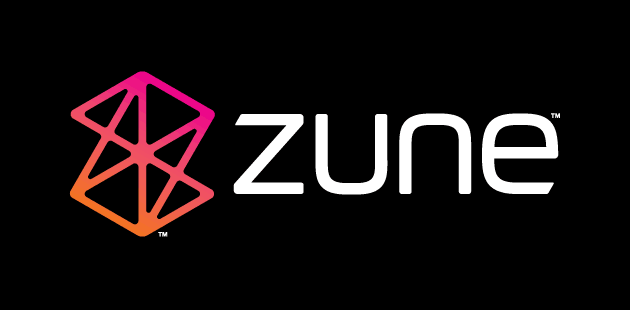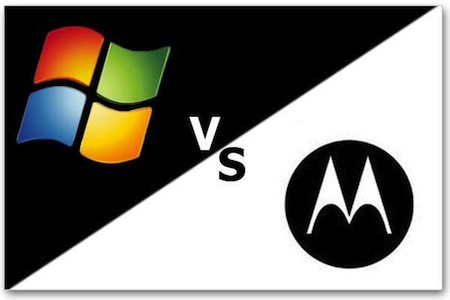Author: Richard
Video of the Week: Man Washes Hands in Urinal
You’d have thought the water being yellow would have given it away.
Microsoft Kills Zune, Promoted Xbox to Entertainment Hub
In yet another rebranding, Microsoft has officially killed Zune, the music and video player in Windows 7. Yusuf Mehdi, Chief Marketing Officer of Interactive Entertainment Division at Microsoft, has stated that the Xbox will become the entertainment hub and will be delivering new services in the near future with Windows 8.
This year, Xbox becomes the premium entertainment service for Microsoft. Whether on your PC, tablet, TV or phone, Xbox will be a gateway to the best in music and video, your favorite games and instant access to your friends. With the launch of Windows 8, we’ll bring Xbox entertainment to everyone. With Xbox on Windows 8 devices, we rapidly accelerate the reach of Xbox entertainment from more than 60 million people to hundreds of millions of people worldwide.
We understand that entertainment has become a multi-screen experience where you and your friends are watching TV, listening to music, and playing games while interacting with your tablets and phones in new ways. We’ve got ideas for making all the entertainment you love more personal, interactive and social across the devices you love—and on the phenomenal Windows 8 devices that are to come.
His comments are true, but will the death of Zune have a negative impact? It’s probably true to say that relatively few people had much to do with Zune – those with Zune players or Windows Phone would have had it, but many more people would have been reliant on Windows Media Player or iTunes. Nonetheless, in the media department at least, Microsoft seems to be suffering from a lack of decisiveness when it comes to branding, as it has been doing a lot of renaming. The Zune players were meant to be Microsoft’s answer to the iPod, and despite being critically well received they were short lived, with Microsoft killing the line off. Recently we have also seen Windows Live being given its retirement package, as it simply becomes Microsoft services – which begs the question of why Xbox is immune to this and doesn’t become Microsoft Entertainment or some such. Actually, the Xbox was so successful probably because it lacked the Microsoft/Windows branding.
The problem isn’t so much dropping Zune, but was there actually a need to? With Microsoft changing names at a speed that can make heads spin, the biggest problem it may face is alienating potential consumers that simply find too much confusion in Microsoft’s offerings.
An Interview with Tunafish Media
The following questions were answered by Smudge Jones and James McDonald. They founded Tunafish Media in January 2010, along with their business partner Richard Brooks.
Who is Tunafish Media?
SJ: We are a Manchester-based media production company, operating out of the Sharp Project. We are probably best known for the music videos we have made for Danny Mahon, The Last Party and Daystar, but we have done a lot of corporate, commercial and events stuff as well.
JM: We have worked with Pretty Green, Harvey Nichols and Northern Restaurant and Bar amongst others.
Can you briefly explain the background of you all?
SJ: We all met at the University of Salford, where we were all studying on various Media Production courses. Me and Ric were on the same course and worked together often, Macca joined us later on.
JM: There was another guy who worked with them, but he was ill so I ended up getting drafted in.
What made you want to work together to create Tunafish Media, and where did the name Tunafish come from?
SJ: After uni, I was working on a business enterprise scheme and that gave us some decent contacts to do things ourselves.
JM: Me and Ric were working on various film sets and TV channels, but the three of us were still doing stuff on the side. We decided to just make a go of it.
SJ: Starting ourselves and trying to build something from the ground up just seemed like a more interesting option than joining a bigger a company and working our ways up individually.
JM: The name? Basically, wherever we went Ric was armed with a tuna sandwich. We’d be on a shoot and he’d be stood their eating tuna.
SJ: He was literally eating tuna all of the time, we went to the cinema and he was there eating a tuna baguette stinking the place out. He mixes up a bit now though, he has pasta one day a week.
Can you tell our readers what services are offered? Do you offer every facet of multimedia, or do you focus primarily on video content?
JM: Video content is our specialty, but we do offer a lot of social media services to certain clients as well.
SJ: I used to work in radio for years, but most of the time we get approached for video work. We’ve not really had the chance to do any radio yet.
What does Tunafish Media offer that sets it apart from other multimedia companies out there?
JM: We’re young, we’re still enthusiastic. Other companies may have lost that enthusiasm over time.
SJ: There are some great production companies out there now. Mellow9 in London is one that springs to mine. It’s a good time for TV, film and video production in England at the minute. There’s a lot of talented people out there and seeing the work they are producing only makes you want to improve and keep moving forward yourself.
You have developed a wide client base since starting only 2 years ago. What would you say has been your favourite company to work with and project to work on, and why?
JM: Each company is different and have their own merits.
SJ: Each represents a different challenge, mixes it up.
JM: Every day is different pretty much, which you can’t really say if you are working in an office. No offence to office workers.
Do you have a dream collaboration that you’d like to happen?
SJ: Eric Cantona or Owen Wilson.
JM: I’d like to do a feature film with someone like Tom Hardy or Leonardo Di Caprio, I really like them as actors.
SJ: I’d like to stand on a David Fincher set for a day and just watch him work.
JM: Mr. Motivator, Wolf From Gladiators, Mike Skinner, Jet from Gladiators, Chris Moyles, Eureka Johnson, in fact anyone from Gladiators.
SJ: What was the referee called? I want him to record my voicemail message…
What does the future hold for Tunafish Media?
JM: We’d just like to see where it goes, continue to work with exciting people and keep that buzz that we’ve got.
SJ: Keep moving forward, keep improving, see what happens.
JM: He was called John Anderson by the way
SJ: Oh yeah that’s the guy.
To learn more about the company or hire them for production work, visit the site at www.tunafishmedia.co.uk
Microsoft Gets Motorola Android Phones Banned in USA
The International Trade Commission has ruled that Motorola’s Android devices are banned from the USA until the mobile company agrees patent infringement with Microsoft.
There’s something of an industry joke that Microsoft earns more money from Android than it does Windows Phone – and, indeed, more than Google earns from Android. Almost all of the Android OEMs have agreed a settlement with Microsoft whereby they pay a royalty fee for each handset sold, but Motorola has refused to do so. The end result was a patent infringement claim by Microsoft that has resulted in Motorola’s Android devices being banned. What’s particularly intriguing about this is that the Droid series has been successful in America, combining a marketable name (Droid) with a range of devices that made it a good comeback for Motorola.
A few short years ago Motorola had all but slipped into obscurity, so the Android lifeline it received it will no doubt want to keep. That leaves it with two choices: amend the software so it no longer uses Microsoft’s patents, or pay to licence it from Microsoft to keep selling the phones as they are.
The ITC ruled that the Motorola Atrix, Xoom and Droid infringed a Microsoft patent relating to Exchange ActiveSync technology, and the order prohibits “the unlicensed entry for consumption of mobile devices, associated software and components thereof covered by claims 1, 2, 5, or 6 of the United States Patent No. 6,370,566 and that are manufactured abroad by or on behalf of, or imported by or on behalf of, Motorola”. So while the devices themselves have not received banishment, the ruling places into effect a ban on the devices until amendments to the software or an agreement with Microsoft is made.
With Barnes & Noble recently settling with Microsoft for its Android-powered Nook, Motorola is the only major Android maker without a patent licensing deal with Microsoft, and Microsoft itself estimates that its licenses cover more than 70% of all Android devices (phones and tablets) in the USA.
Despite the ruling, Motorola doesn’t seem too concerned, as Jennifer Erickson, a spokesperson for the company, has said that “Although we are disappointed by the Commission’s ruling…Motorola Mobility will not experience any impact in the near term, as the Commission’s ruling is subject to a $0.33/per unit bond during the 60 day Presidential review period.” What this means is that the ruling is not yet final, President Obama has to review it within 60 days who can, if he so chooses, overturn it on the grounds of public policy. Beyond that, Motorola has said it is considering appealing.
While this battle may go on a little longer, it isn’t one-sided when it comes to the two tech giants. Another ITC judge ruled in favour of Motorola in another case, that Microsoft is infringing four of Motorola’s patents. The result of that was a ban on Windows 7 PCs and the Xbox 360 gaming console in Germany. Predictably, Microsoft is appealing the decision.
Video of the Week: How Not to Change an iPhone Screen
This week’s video is both amusing and a cautionary tale of how not to change your iPhone screen. Deftly sidestepping the immediate jokes about the IQ of the average iPhone user, enjoy…





